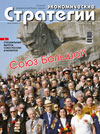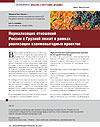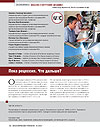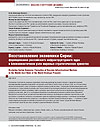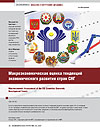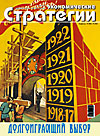
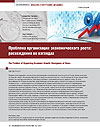
The subject of the study was the problem of elaborating the economic growth policy in Russia. The economy’s exit from recession requires justification of government policy measures contributing not only to overcome the crisis, but also to bring the economy to a path of sustainable economic growth at a given rate. The article deals with positions of economists, representing two major camps in their views on the economic policy of growth — expansionists and restrictionists. The first are in favor of active stimulation of the economy by means of budgetary and monetary policy, while the latter profess policy of cutting expenditures and carrying out individual reforms which, in their view, will improve the quality of economy functioning (judicial reform, privatization, etc.). Applying comparative analysis, based on the facts of economic growth and the crisis in Russia, the author substantiates the necessity of forming a new model of growth for our country, indicates strategic directions of such policy and presents scientific arguments that confirm this choice. For example, it is shown that for promoting investment in the first phase of the exit from recession it is necessary not only to build-up the rate of investment, but to stimulate aggregate consumption and to restore the level of citizens’ incomes. The existing choice between expansion and restriction as types of policy is not so unequivocal, because there are serious constraints on monetary expansion, and to consider this kind of policy in Russia apart from other systemic effects that should be commensurate with this policy model while implementing it, is inappropriate. Economic policy of a new growth should be based on the presence of feedback and influences in the economic system and should correctly evaluate the current status against established strategic guidelines.
Продолжить чтение


